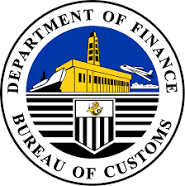 The Bureau of Customs (BOC) has decentralized and transferred non-information technology functions from its Management Information System and Technology Group (MISTG) to other relevant groups and offices so the IT group can focus on its main role.
The Bureau of Customs (BOC) has decentralized and transferred non-information technology functions from its Management Information System and Technology Group (MISTG) to other relevant groups and offices so the IT group can focus on its main role.
Customs Commissioner Isidro Lapeña on September 4 signed Customs Memorandum Order (CMO) No. 13-2018, which transfers certain non-IT functions of MISTG to other authorized groups/agencies whose primary roles are more aligned with such functions.
CMO 13-2018 covers the activation of users in the Client Profile Registration System (CPRS) of BOC’s electronic-to-mobile (e2m) system as well as other non-IT functions of MISTG.
The memorandum notes that this is to enhance efficiency in accreditation and CPRS activation process and “strengthen accountability by aligning roles and responsibilities for the performance of select functions.”
CPRS is a module under BOC’s e2m system that facilitates the automated process of registration and renewal of all stakeholders.
Under CMO 13-2018, different offices in BOC will now take responsibility for activation in the CPRS.
These are BOC’s Account Management Office (AMO) for activation of importers, customs brokers, airlines, shipping lines, exporters registered with their respective investment promotion agencies, and other exporters; BOC Assessment and Operations Coordinating Group (AOCG) for value-added service providers (VASPs), arrastre operators, customs bonded warehouses, customs facilities and warehouses, and authorized agent banks; AOCG-Super Green Lane Committee for super green lane importers; BOC district collectors’ offices for once-a-year importations; and Revenue Collection and Monitoring Group for surety companies.
For CPRS renewal of other government agency-registrants, the AOCG is now responsible for VASPs and arrastre operators, while AMO is in charge of airlines, shipping lines, and forwarders/consolidators.
The activation of Authority to Release Imported Goods (ATRIG) to specific tariff codes shall also be the responsibility of AOCG.
CMO 13-2018, which takes effect 15 days after publication in a newspaper of general circulation, is subject to periodic review every three years.









